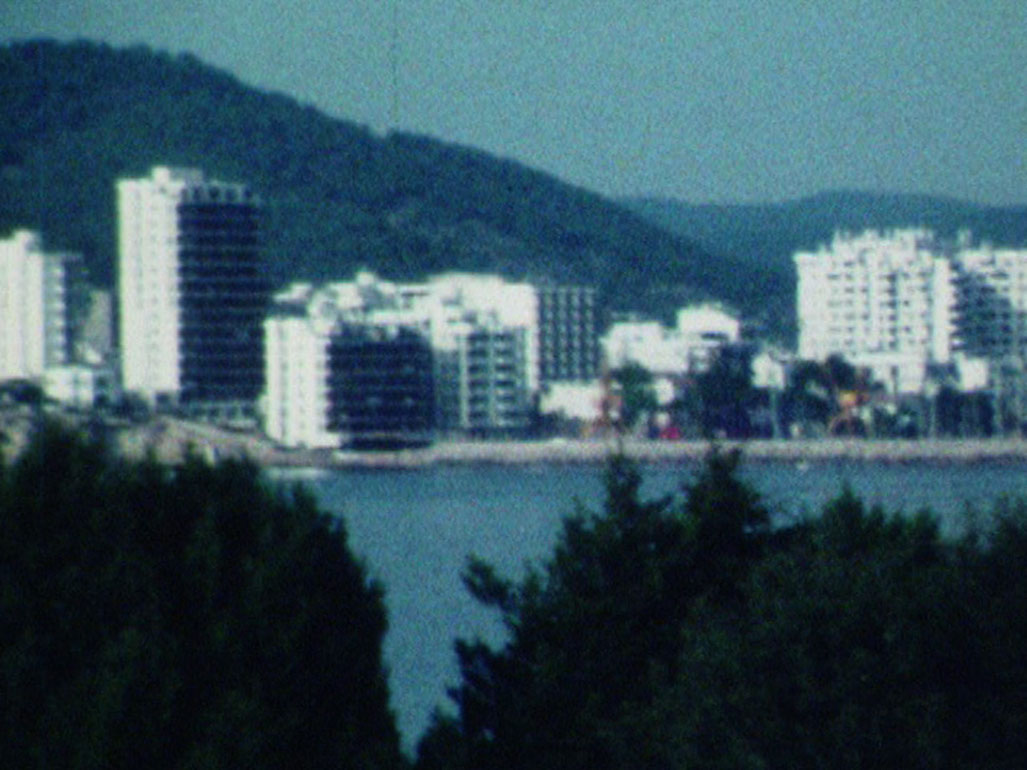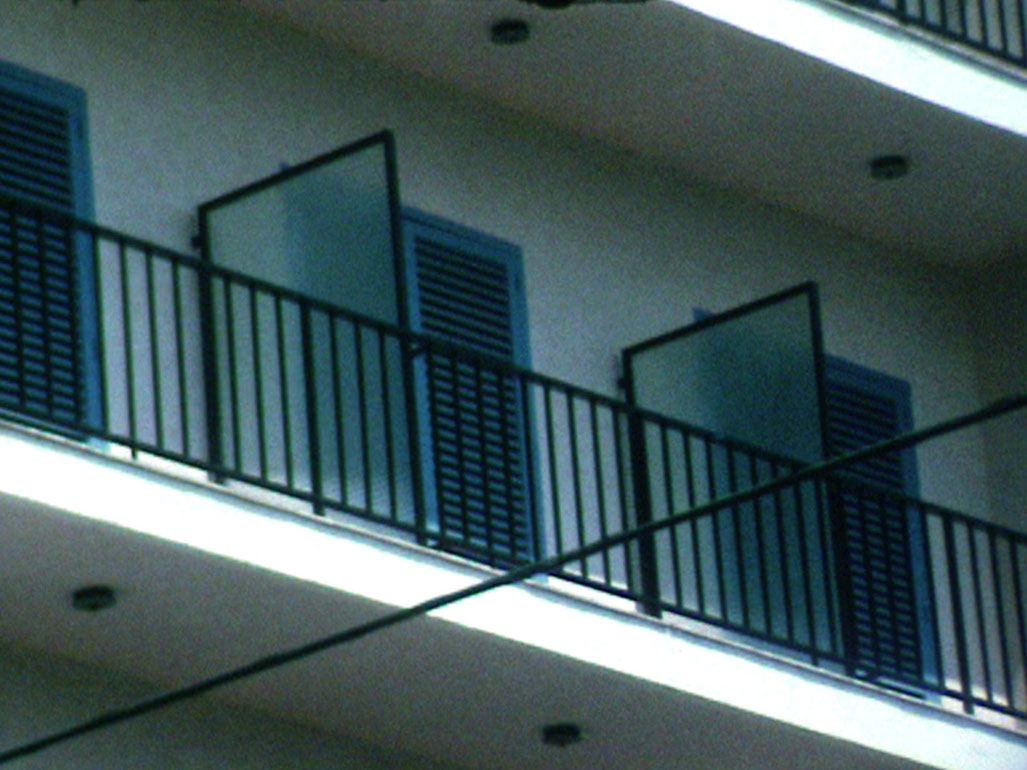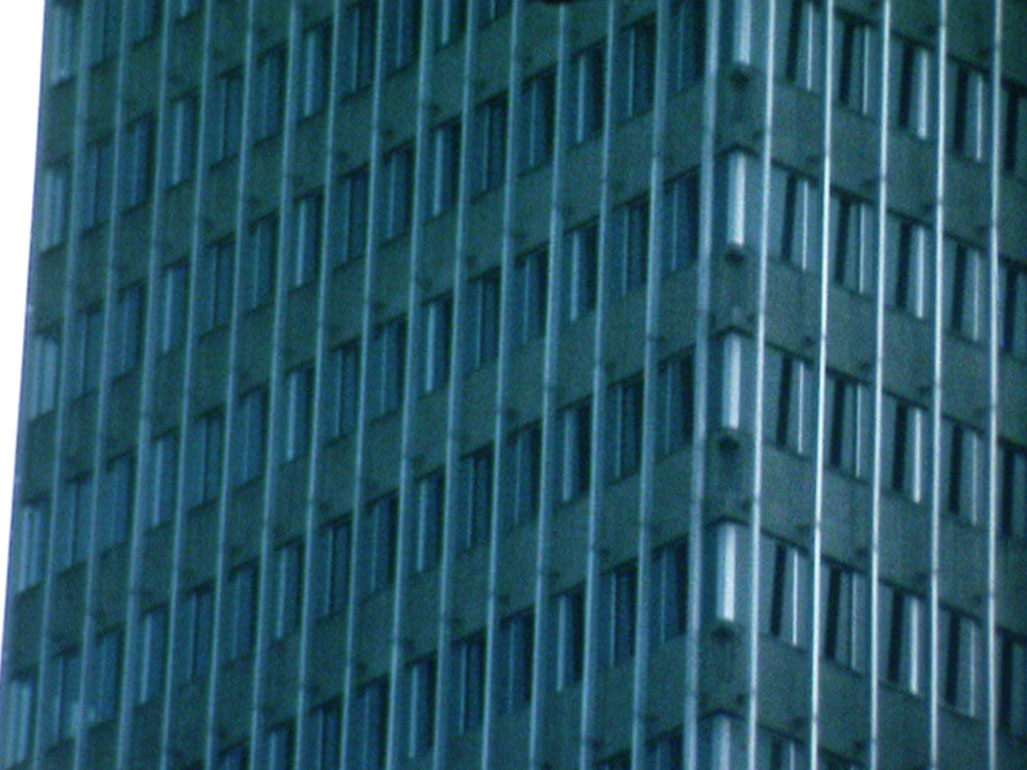Siesta
“It must be about one week since it happened....” A deserted beach in the morning, empty alleyways in the midday heat, panoramas of a grid of streets where no movement can be perceived from the distance. What looks like the normal downtime in the rhythm of a Southern European coastal city’s day — the siesta — is drawn out to a catastrophic length in the film: Something has happened, and Barcelona’s now empty and the painted beach clock has stopped. A local resident looks for other survivors and new supplies. She films her forays, and the voiceover reads entries from her diary. Both the images’ textures and the footage of this world make it clear that this disaster happened some time in the past: The grainy 8mm footage was taken from vacation films shot around 1980. Filmmaker David Krems purchased them at a flea market and repurposed the material for this miniature of weird everyday life.
This evokes associations with the current boom in horror films made with purportedly found footage (and, incidentally, with an Austrian post-apocalypse scenario that was also made with fake found footage, Michael Palm’s Sea Concrete Human). Of course, in Siesta the footage is real, and the context artificial. The work on the image eventually settles between clever manipulation and applied analysis. All traces of civilization were removed by means of digital post-processing, the editing and narrative unite various popular vacation spots to create the location of Barcelona, and because the protagonist takes a tape recorder along on her expeditions, Hugo Furtado created a layered sound design whose destructive power lies in naturalism. At the same time the transformation from images of a vacation to those depicting survival reflects on the conventions of tourism through a camera’s lens: The foundation for a gaze removed from everyday life, for which every street, every cluster of villas becomes an event, has already been set up in the raw material. The fact that a tourist’s scanning of locations can turn into paranoia so quickly represents the actual weird core of Siesta.
(Joachim Schätz)
Siesta
2012
Austria, Portugal
15 min



